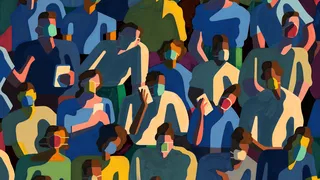The effect of the coronavirus pandemic on our sense of economic confidence will have everything to do with how long we are stuck inside, how long we are out of work, and what safety nets fail us in the interim. Even if stay-at-home orders are mostly “over” by this summer, how many of us would risk our lives to frequent restaurants or go shopping? The virus, whenever it’s over, will affect our every financial, demographic, and lifestyle decision, from borrowing money to having children to living in crowded cities.
The US consumer confidence index has already dropped 30 percent since February. Millions of newly unemployed workers and small businesses already can’t or aren’t paying their rent or mortgage.
And it’s all happening as about 30 percent of Americans have zero emergency savings, and only one-fifth have savings sufficient to last six months. No surprise — our country has been overspending for decades. Our national saving rate has declined dramatically since the 1950s and ’60s. If and when people emerge from their homes, they’ll be cowed, not confident, economic actors.
Fewer Americans will start businesses, and those they start will be safely online; surviving businesses will hire and borrow less. People may prepay their mortgages instead of maxing out their 401(k)s or playing the market. Many people will start saving not for a rainy day but for a years-long deluge.
Just as families during the Great Depression relied on kitchen gardens and community “thrift gardens” to grow food rather than buy it, we’ll return to growing our own food to the extent we have space or can move somewhere that does. Entertainment and social events will move to potlucks, board games, and other living room entertainment instead of movies or restaurants, just as it did during that period.
For those with the means, the first trip won’t be to Gucci, if it’s there. It may be to Kansas to buy a small home, with ample land for planting and posting Keep Out signs.

0 Comments